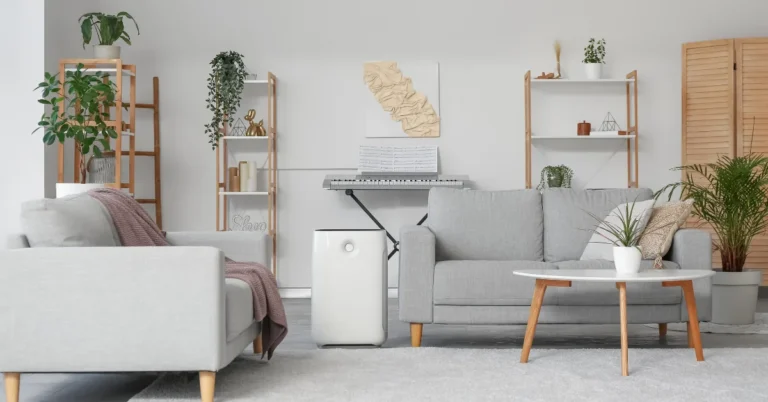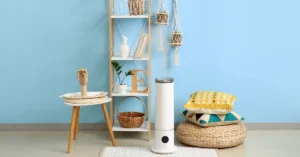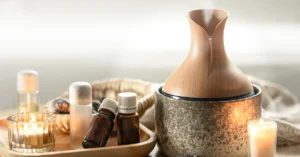Introduction
Have you ever found yourself wondering why your allergies flare up at home, or why your skin feels dry even indoors? You might be looking at air quality or humidity issues as the culprit. When it comes to improving your home’s comfort, two popular devices come into play: air purifiers and humidifiers. But, what’s the difference between an air purifier and a humidifier? How do you know which one you need, or whether you should use both?
In this post, we’ll break down the key differences between these two gadgets, so you can make the right choice for your home and health.
What is an Air Purifier?
An air purifier is a device designed to clean the air in your home by removing airborne particles like dust, pollen, pet dander, and even smoke. If you suffer from allergies, asthma, or just want to breathe cleaner air, an air purifier can be a game changer.
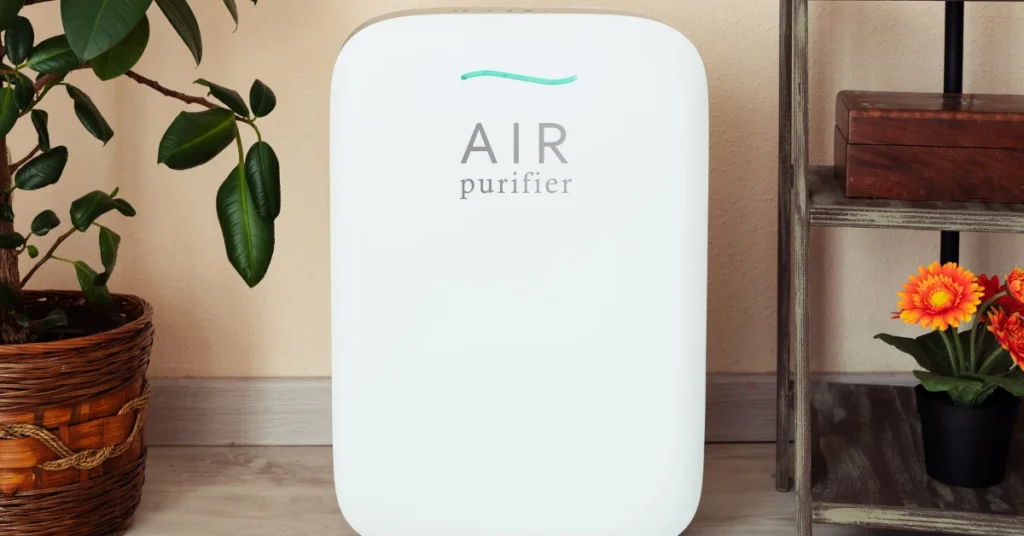
How Does It Work?
Most air purifiers use a system of filters to trap particles as air passes through the device. The most common filters are HEPA filters, which can capture up to 99.97% of small particles, and activated carbon filters, which help neutralize odors. Some models even include UV light to kill bacteria and viruses.
Benefits of Air Purifiers:
- Reduces Allergens: Ideal for those with asthma or allergies, air purifiers help to reduce triggers like dust mites, pet dander, and pollen.
- Eliminates Odors: Smoke, cooking smells, and pet odors can be significantly reduced with an air purifier.
- Improves Overall Air Quality: Cleaner air can lead to better respiratory health, fewer allergy symptoms, and even better sleep.
When Should You Use an Air Purifier?
- If you have allergies or asthma and need relief from airborne triggers.
- In homes with pets, to reduce dander and odors.
- To minimize indoor pollution, especially in cities or areas with poor air quality.
What is a Humidifier?
A humidifier is a device that adds moisture to the air, which can be incredibly helpful during dry seasons or in arid climates. Unlike an air purifier, which focuses on cleaning the air, a humidifier works to maintain a healthy level of humidity in your home, making the air more comfortable to breathe.
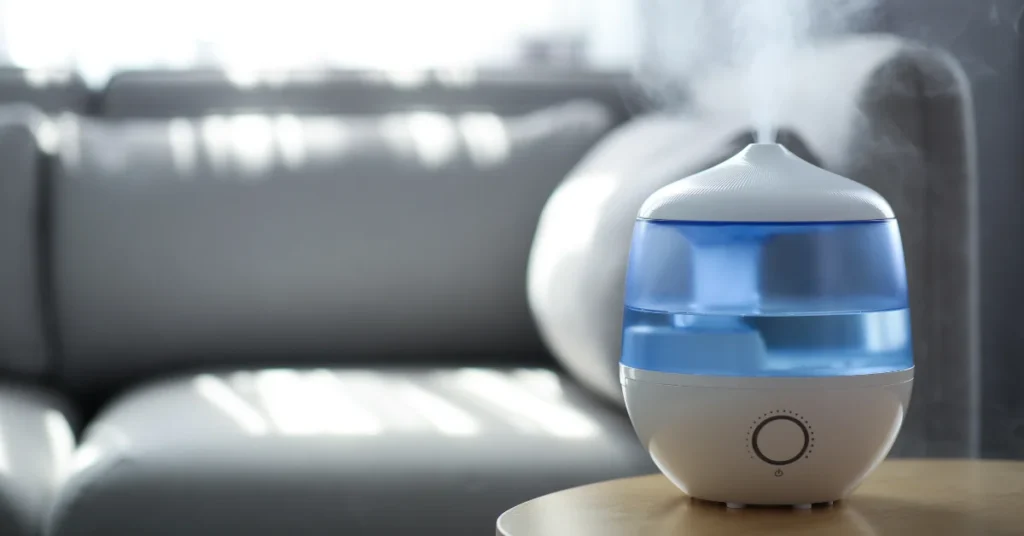
How Does It Work?
Humidifiers work by turning water into vapor or mist. There are a few types, such as warm mist, cool mist, and ultrasonic humidifiers, but they all aim to increase the moisture level in the air. The ideal indoor humidity level is usually between 30% and 50%. When air gets too dry, it can lead to dry skin, irritated sinuses, and even damaged furniture.
Benefits of Humidifiers:
- Prevents Dry Skin and Irritation: Moist air helps to soothe dry, itchy skin and can reduce nasal congestion.
- Eases Respiratory Discomfort: If the air in your home is too dry, it can cause scratchy throats or exacerbate asthma. A humidifier keeps the air more comfortable.
- Protects Wooden Furniture and Musical Instruments: Proper humidity levels prevent cracking or warping caused by dry air.
When Should You Use a Humidifier?
- During winter, when indoor heating systems dry out the air.
- If you suffer from dry skin, dry throat, or sinus issues.
- To maintain the humidity in homes with wooden furniture or instruments that need moisture to stay in good shape.
Key Differences Between Air Purifiers and Humidifiers
While both air purifiers and humidifiers are designed to improve your indoor environment, they serve very different purposes. Understanding these differences will help you determine which one you need—or if both are necessary.
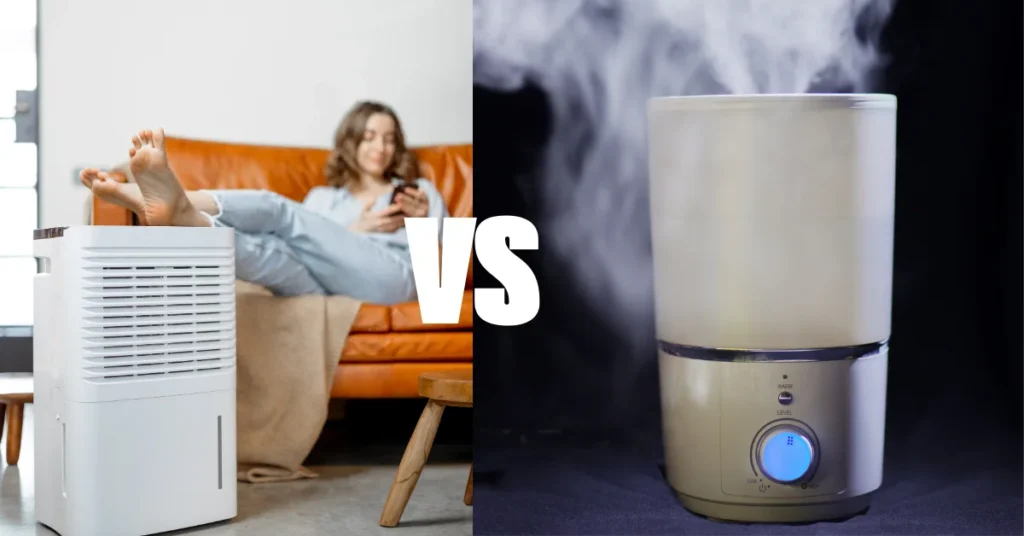
1. Purpose
- Air Purifiers: Their main function is to remove contaminants like dust, pollen, mold spores, and smoke from the air. This helps create a cleaner, healthier space for breathing, especially for those with allergies or asthma.
- Humidifiers: On the other hand, humidifiers work by adding moisture to the air. This can be crucial in dry environments, preventing dry skin, nasal irritation, and even protecting wooden furniture from cracking.
2. Functionality
- Air Purifiers: They actively clean the air by trapping particles in filters (like HEPA or carbon) or killing them with UV light.
- Humidifiers: Humidifiers don’t clean the air; they simply manage moisture levels by releasing water vapor, making the air more comfortable to breathe.
3. Best Use Cases
Air Purifiers:
- If you or someone in your home suffers from allergies, asthma, or respiratory issues, an air purifier is ideal.
- It’s also useful in homes with pets or if you live in an area with high pollution or frequent wildfires.
Humidifiers:
- A humidifier is most effective during the dry winter months or if you live in a naturally dry climate.
- It helps relieve dry skin, cracked lips, and sinus issues caused by low humidity levels.
Which One Do You Need?
- For Cleaner Air: Go for an air purifier, especially if allergies or pollutants are a concern.
- For Better Humidity: A humidifier will be your best bet if the air in your home feels too dry.
- In Some Cases, Both: In certain situations, like during winter, you might need both to ensure clean air and balanced humidity levels.
Can You Use an Air Purifier and Humidifier Together?
Absolutely! Air purifiers and humidifiers can work together to create a healthier, more comfortable indoor environment. Since they serve different functions, they don’t interfere with each other and can complement one another quite well.
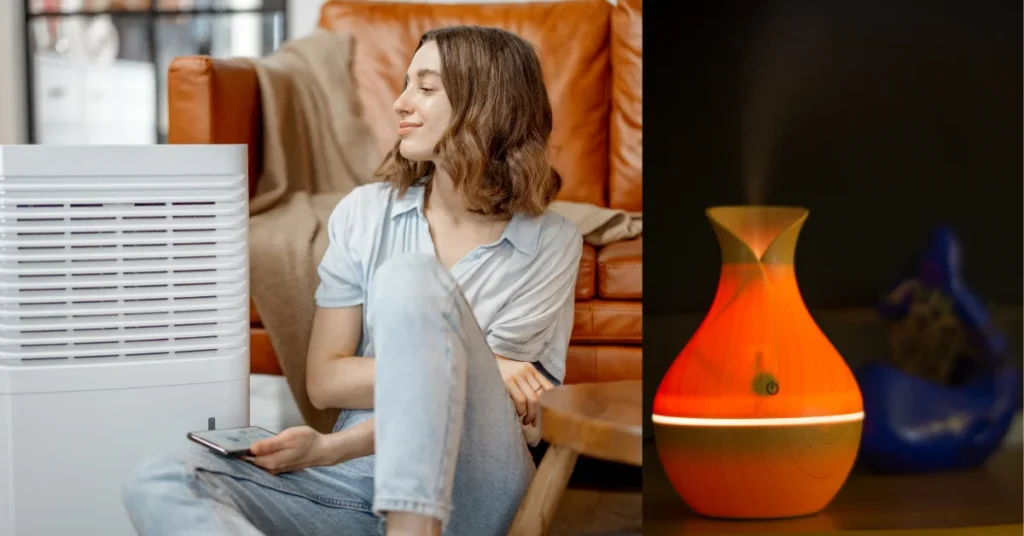
Benefits of Using Both Together:
- Clean Air and Proper Humidity: Air purifiers remove harmful particles from the air, while humidifiers ensure the air has the right level of moisture. This can be especially useful during dry seasons when indoor heating can make the air too dry, leading to respiratory issues.
- Ideal for Winter: In winter, the air tends to be both dry and filled with dust or allergens from indoor heating systems. Using both devices ensures you get the best of both worlds—clean air that’s also comfortable to breathe.
- Relief for Allergy Sufferers: If you have allergies or asthma, combining these devices can help. The air purifier reduces allergens, while the humidifier prevents dryness that can irritate your throat and nasal passages.
Tips for Using Both Together:
- Placement: Be sure to place them in different areas of the room to avoid the humidifier’s mist from dampening the air purifier’s filters, which could reduce its efficiency.
- Room Size: Make sure the room size is appropriate for both devices. Some air purifiers and humidifiers are designed for small spaces, while others can handle larger areas. Check the specs for each to ensure they are effective for your specific room.
Do They Affect Each Other?
While using a humidifier won’t damage an air purifier, excessive moisture might make the air purifier’s filters slightly less effective. As long as you don’t over-humidify the space (keeping it between 30-50% humidity), they should work perfectly together.
Which is Better for Allergies: Air Purifier or Humidifier?
If you suffer from allergies, the question of whether to invest in an air purifier or a humidifier is crucial. While both can improve your indoor environment, they address different aspects of air quality that impact allergies.
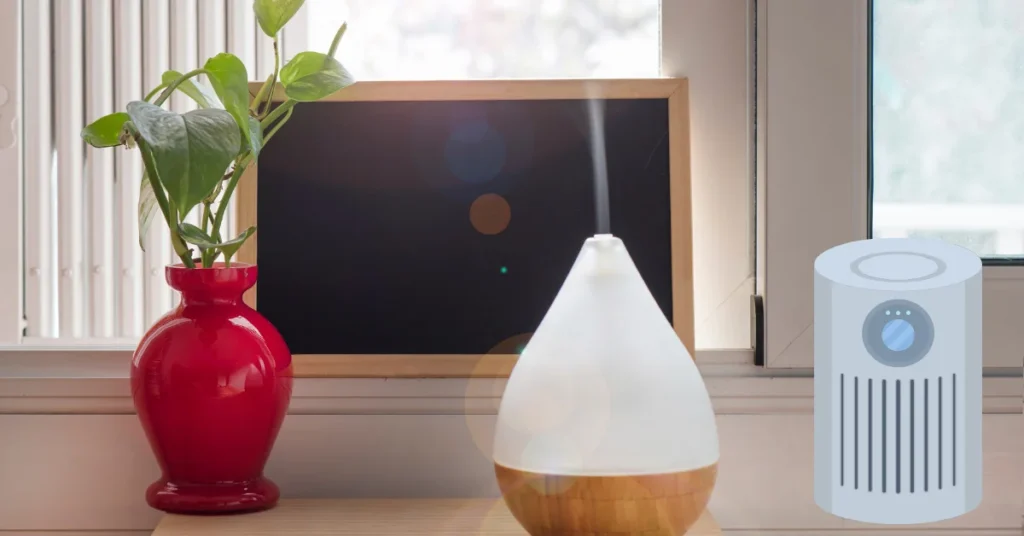
Air Purifiers for Allergies
Air purifiers are generally the better choice for allergy sufferers. Here’s why:
- Removes Allergens: Air purifiers filter out airborne particles that trigger allergic reactions, such as pollen, pet dander, dust mites, and mold spores.
- Improves Respiratory Health: By trapping allergens before they enter your respiratory system, air purifiers can help reduce symptoms like sneezing, coughing, and itchy eyes.
- Great for Asthma: Air purifiers can also be a game-changer for those with asthma, as they remove many of the airborne irritants that can trigger asthma attacks.
Humidifiers and Allergies
Humidifiers can help with allergies, but they are more about comfort than prevention:
- Soothes Irritated Airways: Humidifiers add moisture to dry air, which can ease the symptoms of congestion, dry throat, and irritated nasal passages.
- Risk of Over-Humidification: However, if the humidity level becomes too high (above 50%), it can actually make allergies worse by promoting the growth of mold and dust mites, two common allergy triggers.
The Verdict
- For Allergies: If your primary concern is allergies, an air purifier is the better option because it directly removes allergens from the air.
- For Dryness: If dryness is adding to your discomfort—especially during winter—a humidifier can help relieve dry skin and throat irritation.
- Best of Both Worlds: If you’re dealing with both allergies and dry air, using both an air purifier and a humidifier can provide the most comprehensive relief.
Pros and Cons of Air Purifiers and Humidifiers
When deciding between an air purifier and a humidifier (or whether you need both), it helps to consider the pros and cons of each device. Here’s a breakdown:
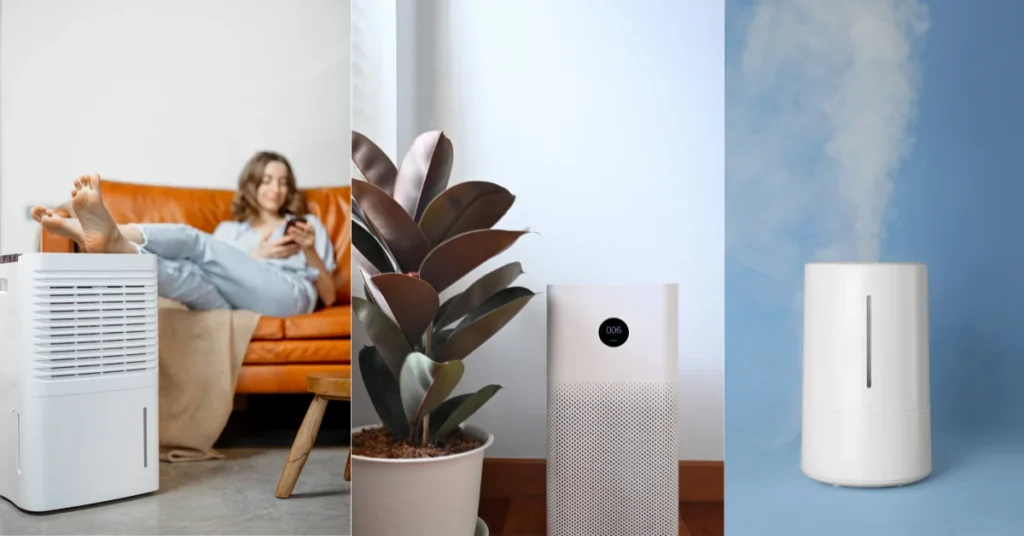
Air Purifiers
Pros:
- Removes Allergens and Pollutants: Excellent for reducing allergens like dust, pollen, and pet dander, as well as pollutants such as smoke and volatile organic compounds (VOCs).
- Improves Overall Air Quality: Keeps the air clean, which can help improve breathing and reduce respiratory symptoms.
- Odor Control: Filters can trap and neutralize odors from cooking, pets, or smoke.
Cons:
- Filter Maintenance: Air purifiers require regular filter changes, which can add up in cost, especially for HEPA or carbon filters.
- Initial Cost: High-quality air purifiers, especially those with multiple filtration stages, can be expensive.
- No Effect on Humidity: While they improve air quality, air purifiers don’t address dry air issues.
Humidifiers
Pros:
- Adds Moisture to Dry Air: Helps alleviate symptoms of dry skin, irritated nasal passages, and scratchy throats, particularly in winter.
- Promotes Comfort in Dry Climates: Keeps air comfortably humid, which can be beneficial for wood furniture and musical instruments that dry air might damage.
- Affordable Options: Many types of humidifiers are budget-friendly, especially simpler models like cool mist or warm mist versions.
Cons:
- Requires Regular Cleaning: Without frequent cleaning, humidifiers can become breeding grounds for mold and bacteria, which can worsen air quality.
- Risk of Over-Humidification: Too much humidity can lead to mold growth or attract dust mites, which can make allergies worse.
- No Effect on Air Purity: Humidifiers only add moisture to the air; they don’t remove airborne particles or allergens.
Does a Humidifier Affect an Air Purifier?
Using a humidifier doesn’t directly interfere with an air purifier, but over-humidifying a room could slightly affect the purifier’s filters. As long as the humidity is kept in the ideal range (30-50%), both devices can work together without issues.
Conclusion
When it comes to choosing between an air purifier and a humidifier, the decision depends on your specific needs. If your main concern is allergies, asthma, or improving overall air quality, an air purifier is the way to go. It effectively removes allergens, pollutants, and odors from the air, making it easier to breathe, especially if you suffer from respiratory issues.
On the other hand, if dry air is causing discomfort—like dry skin, irritated sinuses, or static electricity—then a humidifier will provide much-needed relief by adding moisture to the air. This can be particularly helpful in winter or in naturally dry climates.
Final Recommendation:
- For cleaner, allergen-free air: Choose an air purifier.
- For relief from dry air: Opt for a humidifier.
Need both? If you’re dealing with both allergies and dry air, using both devices together can create the perfect balance—clean air that’s comfortable to breathe.
